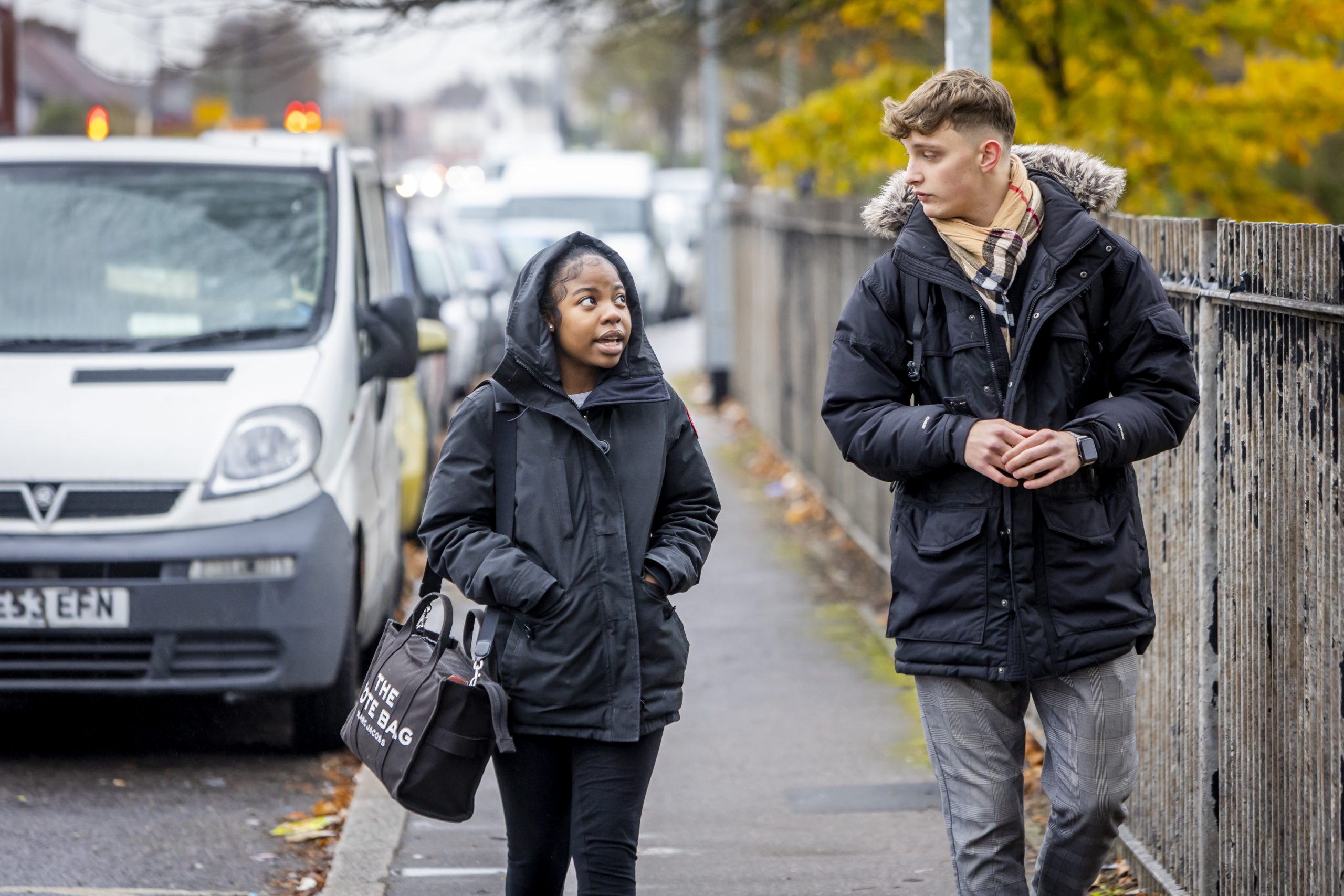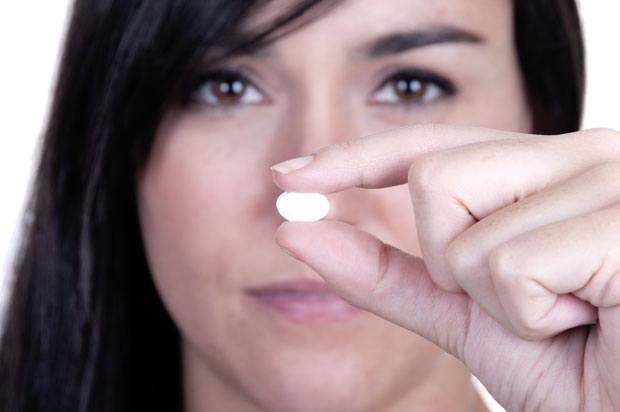Antidepressants
What are antidepressants? And do they work? The Mix explains antidepressants, the different types, and how to get them.

Antidepressants are a type of medication used to treat depression. They’re also used to treat OCD, panic attacks, post-traumatic stress disorder, anxiety and other mental health issues.
What types of antidepressants are there?
There are lots of different antidepressants, all with broad names to describe how they work. Some have different side-effects than others, so ensure you’ve chatted with your doctor about what you’ve been prescribed and why. The five broad types of antidepressants are:
- Selective Serotonin Reuptake Inhibitors (SSRIs) are the most common antidepressants. They’re prescribed to help people with bulimia, anxiety and depression.
- Serotonin-Norepinephrine Reuptake Inhibitors (SNRIs) work in a similar way to SSRIs.
- Noradrenergic and Specific Serotonergic Antidepressants (NASSAs) have very similar side-effects to SSRIs, but aren’t so likely to interfere with your sex life.
- Tricyclic Antidepressants (TCAs) aren’t usually recommended at first because an overdose is dangerous and they have worse side-effects. They’re only usually given to people with severe depression, anxiety and insomnia when other treatments haven’t worked.
- Monoamine oxidase inhibitors (MAOIs) are only used if other types of antidepressant aren’t effective.
If you’re on MAOIs you need to be careful about what you eat and drink, as they can cause high blood pressure. Your doctor will explain which foods to avoid.
MAOIs are also very dangerous when combined with a number of medications and illicit drugs, such as MDMA, DXM and tramado, so be sure to speak to your doctor about the risks and do your research before combining them with any other substances.
How do antidepressants work?
They’re thought to increase the levels of the ‘mood chemicals’ serotonin and norepinephrine, improving your mood and regulating your emotions. If you want to know more about how they work, go to the NHS or Royal College of Psychiatrists websites.
What are the side-effects of antidepressants?
Lists of side-effects tend to look quite long and scary, but most people only experience a few mild ones. Different antidepressants have different side-effects, but the most common are:
- Nausea
- Sleeping problems
- Issues having orgasms
- Sexual disfunction
- Weight gain
It’s understandable to worry about side-effects, so we asked a psychiatrist to explain more. You can also check the side-effects of a specific antidepressant on the NHS website. If the side-effects get too much, it’s really important to tell your GP – don’t suffer in silence. They’ll either be able to put you on a different type of antidepressant, or may look at other ways of helping you.
Do antidepressants really help?
Around 50%-65% of people with depression find taking antidepressants helps, but they don’t help everyone. Ask your GP about all of your treatment options so you can decide together what’s best for you.
Antidepressants can help with your depressive feelings, but for most people (unless you have depression due to genetic/neurological factors), they don’t deal with the causes of your depression. So it’s important to look at other treatments and approaches, such as:
- Counselling
- Psychotherapy
- Changing the parts of your life that are getting you down
Some types of antidepressants might work better for you than others. They take at least three weeks to have an effect, but if they haven’t helped after six weeks, then go back to your GP to discuss trying a different type.
“With depression, doctors usually say to take them until you feel better and then for six months after that. It can be two to four weeks before you notice an effect on your mood,” says GP Registrar Gemma Newman. “The pills aren’t a quick fix, so if you stop taking them too early the depressed feelings are more likely to return.”
If you’re still not sure whether you want to take them or not, read our article here.
How can I get antidepressants?
Antidepressants are prescribed by your GP or psychiatrist – you can’t buy them over the counter, and you certainly shouldn’t try and buy them over the internet.
Your GP will talk to you about how you’re feeling before discussing possible medication and therapies. If they prescribe antidepressants, they should explain how and when to take them and any possible side-effects.
What should I ask my doctor about antidepressants?
If your GP prescribes you an antidepressant, make sure you know as much about the medication as possible. Here are some questions you might want to ask them:
- What are the possible side-effects and how long will they last?
- Are there any foods I shouldn’t eat?
- When should I take them and how often?
- Will they make me sleepy?
- How long should I take them for?
- When I stop taking them will there be any withdrawal symptoms?
If you forget to ask your doctor anything you can always ask your pharmacist, as they know the answers too.
Can I refuse to take antidepressants?
Yes – you have a legal right to refuse medication if you don’t think it’s working for you or because you don’t want to take it, although it’s worth noting that those who are detained under the Mental Health Act or who are under a treatment order will be required to take prescribed medication.
Talk to your doctor and also with any friend or family member who supports you and find out why they feel you may need more time on the medication.
If, after discussing it you still disagree with your doctor, they will be able to help you come off the tablets gradually. Remember they are there to give sound advice, but they must also respect your wishes.
Who shouldn’t take medication for depression?
You’re likely to be told to avoid medication if:
- You’re pregnant: your needs will always be taken into consideration, but there’s a possible risk to an unborn child, so every alternative should be explored before prescribing antidepressants
- You’re breastfeeding: you can pass any drugs to your baby through breast milk
- You’re on other medication: antidepressants can interact with a number of different types of drug, and some combinations can be dangerous, so make sure your doctor is aware of any other drugs you’re taking
- You have a serious mental health condition where antidepressants can trigger mania, for example Bipolar Disorder
How should you come off them?
The most important thing is to make sure that you reduce your tablets gradually – if you stop them quickly you’re more likely to get withdrawal symptoms. “Withdrawal symptoms will depend on the strength of the medication you are taking – tablets with a shorter duration of effect will generally cause more symptoms,” says Dr Newman.
Bonnie, 25, has been on Seroxat for seven years after suffering a nervous breakdown. “I wanted to come off Seroxat a year after I started taking it because I didn’t feel it was making any difference. I’d also heard reports about how people had felt suicidal on it, which was similar to how I was feeling. I’ve tried many different ways to come off it and it’s only now that I’ve nearly got there, six years later.”
Withdrawal symptoms
A third of people who are coming off antidepressants can have withdrawal symptoms – this doesn’t mean that you are addicted, but it isn’t unusual for people to find it difficult to come off antidepressants. If you’re coming off Selective Serotonin Reuptake Inhibitors (SSRI), symptoms may include:
- Dizziness;
- Stomach upsets;
- Vivid dreams;
- Panic attacks;
- Diarrhoea;
- Flu-like symptoms;
- Anxiety;
- Sensations that feel like electric shocks.
You’re also more likely to get withdrawal symptoms if you’re skipping doses, or if you’re on other medication that may act with the antidepressant. You may also find your withdrawal symptoms worse if you initially suffered from anxiety when you started taking antidepressants.
Long term support after stopping antidepressants
“All young people should be offered counselling when they are feeling low, both before antidepressants are given, and during the treatment,” says Gemma. Most health authorities have Cognitive Behaviour Therapy (CBT) or talking therapies available free of charge on the NHS – the only issue is that this isn’t always offered as an option and there are long waiting lists, which can take 18+ months. If you struggle with this, you can get up to eight sessions of free counselling with The Mix.
“I’m getting counselling as well as taking antidepressants, but you only get a limited amount of six sessions and they hate it if you ask for more,” says 19 year-old Jodie. “I’ve been offered the chance to see a psychiatrist but that’s going to take at least a year because the waiting list is so long.”
The Mix would like to thank Adam Waugh, a senior scientist at The Loop, for reviewing this article.
Next Steps
- If you're under 25 and would like free confidential telephone counselling from The Mix to help you figure things out complete this form and we'll call you to arrange your first session.
- Mind offers advice and support to people with mental health problems. Their helpline runs nine to six from Monday to Friday. 0300 123 3393
- Our Crisis Messenger provides free, 24/7 crisis support across the UK. If you’re aged 25 or under, you can text THEMIX to 85258
- Chat about this subject on our Discussion Boards.
By Holly Turner
Updated on 15-Sep-2022
No featured article










